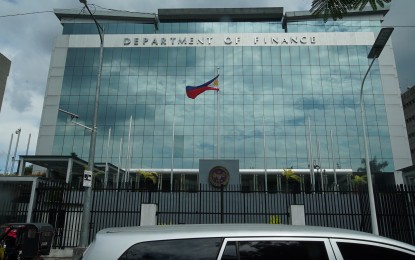
(File photo)
MANILA – The government is ramping up efforts to operationalize the country's digitalized border protection system to put an end to smuggling, misdeclaration, and undervaluation.
In a statement on Friday, the Department of Finance (DOF) said Secretary Ralph Recto recently convened the inaugural committee meeting to operationalize the digitalized border protection system.
The meeting was held at the DOF office in Manila on June 11.
"National security is economic security. It is a crucial issue that often extends beyond actual territorial boundaries. It involves protecting the Filipino people from what goes into our borders," Recto said.
The Pre-border Technical Verification and Cross-border Electronic Invoicing Systems are under Administrative Order (AO) 23, issued by President Ferdinand R. Marcos Jr. and signed by Executive Secretary Lucas Bersamin in May to expedite the inspection of all imported commodities entering the Philippines through digital and integrated pre-border technical verification and cross-border electronic invoicing.
It aims to strengthen national security, safeguard consumer rights, and protect people against substandard and hazardous imported goods.
Pre-border Technical Verification stands for the safety testing and inspection of all imported commodities before shipment. This entails the verification of the declared specifications, description, weight, volume, and country of origin.
The Cross-border Electronic Invoicing System, meanwhile, will be used to create electronic invoices to monitor international trade transactions of all imported goods and will be shared in real time across relevant government agencies for transparency.
“Grounded by AO No. 23, series of 2024, we take the first steps towards achieving a fully digitalized border protection system in the country where no import goes unnoticed and unaccounted for,” Recto said.
AO 23 will be implemented in three phases.
The first will cover agricultural goods while the second will focus on non-agricultural goods with health and safety issues. The third involves other goods with misdeclaration avoiding duties and taxes.
AO 23 created the Committee for Pre-border Technical Verification and Cross-border Electronic Invoicing (CPTVCEI) chaired by the Secretary of Finance.
Other members include the secretaries of agriculture, trade and industry, energy, health, environment and natural resources, and information and communications technology; the Bureau of Customs (BOC) commissioner; the director general of the Philippine Drug Enforcement Agency; and two non-voting representatives of duly recognized industry associations to be appointed by the chairperson upon recommendation of the committee.
During the meeting of the committee, BOC Assessment and Operations Coordinating Group Deputy Commissioner Vener S. Baquiran presented the draft joint administrative order (JAO) on the guidelines and Implementing Rules and Regulations for the conduct of the system.
During the committee hearing, the CPTVCEI also approved the creation of a technical working group to review and finalize the base draft JAO, which is set to be presented in the next committee meeting.
The JAO details the objectives, scope, exemptions, qualifications for the accreditation of Testing, Inspection, and Certification companies, reporting, and clearance procedures, among others for the proper implementation of AO 23.
The CPTVCEI Secretariat also presented the process and timeline for the nomination and appointment of the non-voting representatives from duly recognized industry associations.
The committee shall receive nominations until June 20, and the Secretary of Finance shall have appointed two representatives by June 28, both of whom will be invited to attend the next committee meeting.
Recto said AO 23 gives the committee two years to complete and fully implement the systems. (PNA)
